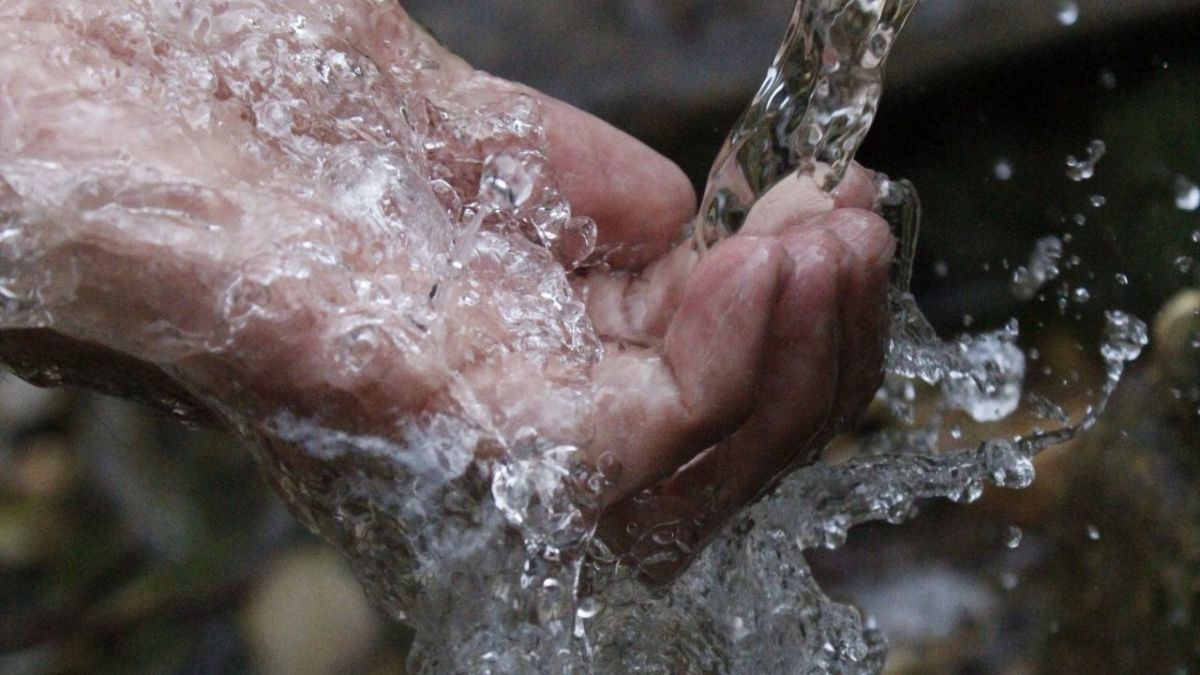
Water
Noun
Meaning
Water is an essential element for survival in the outdoors. It is crucial for hydration, cooking, cleaning, and overall well-being. In the context of survival, water sources such as rivers, lakes, and streams are vital for obtaining safe drinking water. Knowing how to find, collect, and purify water is a fundamental skill in bushcraft and wilderness survival. It is important to understand the potential risks associated with untreated water, such as waterborne diseases. Carrying a reliable water filtration system or learning alternative purification methods like boiling or using water purification tablets is essential for outdoor enthusiasts. Always prioritize water procurement and ensure you have enough for your outdoor adventures.

Examples
„Water is essential for survival in the wilderness. It is crucial to know how to find, collect, and purify water to stay hydrated and healthy. Without water, your chances of survival decrease significantly. Here are five examples of how the word "water" is used in practical situations: 1. "Hey, do you have any water left in your canteen? I ran out, and we still have a long hike ahead of us." 2. "I found a small stream nearby where we can refill our water bottles. Let's take a break and hydrate before continuing our journey." 3. "Remember to always filter and purify the water you collect from natural sources. It's better to be safe than sorry when it comes to drinking water in the wilderness." 4. "I always carry a water purification tablet in my survival kit. It's a quick and easy way to make sure the water is safe to drink, even if it looks clean." 5. "In a survival situation, finding a reliable water source should be your top priority. Look for signs of animal activity or vegetation, as they often indicate the presence of water nearby."“
„Water is a precious resource in the wilderness, and knowing how to find, collect, and purify it is essential for your survival. Whether you're hiking, camping, or facing a survival situation, always prioritize staying hydrated and ensuring the water you consume is safe.“
Origin
The word "water" originates from the Old English word "wæter" which can be traced back to the Proto-Germanic word "watar." This word has its roots in the Proto-Indo-European language, specifically the word "wodr̥" meaning "water" or "wet."
Throughout history, the concept of water has been essential for human survival and has played a significant role in the development of civilizations. The word "water" has remained relatively unchanged in its meaning and pronunciation over time.
Water is a vital resource for all living organisms and is essential for various biological processes. It is a transparent, odorless, and tasteless liquid that covers about 71% of the Earth's surface. It exists in different forms such as oceans, rivers, lakes, and glaciers.
In the context of survival and bushcraft, water is of utmost importance. It is crucial for hydration, cooking, cleaning, and maintaining overall health in the wilderness. Knowing how to find, collect, and purify water is a fundamental skill for anyone venturing into the outdoors.
Water can be sourced from natural bodies such as streams, rivers, and lakes, or obtained through methods like rainwater harvesting and condensation. It can also be treated using filtration, boiling, or chemical purification methods to remove harmful bacteria and contaminants.
Understanding the properties of water, its availability in different environments, and the various techniques to ensure its safety and accessibility are essential for survival in the wild.
Synonyms
Aqua, Liquid, Moisture, Hydration, Fluid, Wetness, H2O
Antonyms
Fire, Drought, Dehydration, Aridity, Dryness, Desert, Scarcity, Lack
Relatives
River, Lake, Ocean, Stream, Pond, Rain, Hydration, Drinking
Historical and cultural importance
Water is a fundamental element for survival and has played a significant role in human history and culture. Throughout history, civilizations have been built around water sources such as rivers, lakes, and oceans. Water has been essential for agriculture, transportation, and trade, shaping the development of societies.
In ancient cultures, water was often seen as a sacred and life-giving force. It was associated with purification, healing, and spiritual rituals. Many religions and belief systems incorporate water in their ceremonies, such as baptism or ritual cleansing. Water has symbolized rebirth, renewal, and the cycle of life.
Water has also been a crucial resource for exploration and trade. The discovery of new water routes, such as the Silk Road or the Age of Exploration, opened up opportunities for cultural exchange and economic growth. Waterways have connected different cultures, allowing the exchange of goods, ideas, and technologies.
In the context of survival and wilderness skills, understanding water sources and how to obtain, purify, and conserve water is essential. Knowing how to find and filter water in the wild can mean the difference between life and death. Water is also crucial for creating fire, cooking, and hygiene in a survival situation.
Overall, water holds immense historical and cultural significance, shaping human civilization and playing a vital role in our survival and well-being.
More information about the term Water
The Importance of Water in Survival
Water is an essential element for survival in any situation. Whether you find yourself lost in the wilderness or facing a natural disaster, knowing how to find, purify, and conserve water is crucial. In this article, we will explore the importance of water in survival and provide you with some valuable tips to ensure your hydration needs are met.
Why is Water Important?
Water plays a vital role in maintaining our overall health and well-being. It is involved in various bodily functions such as digestion, circulation, and temperature regulation. Without an adequate water supply, our bodies can quickly become dehydrated, leading to fatigue, dizziness, and even organ failure.
In a survival situation, water becomes even more critical. It is not only necessary for hydration but also for cooking, cleaning wounds, and maintaining personal hygiene. Without access to clean water, the risk of waterborne diseases such as diarrhea and cholera increases significantly.
Finding Water Sources
When in a survival situation, finding a reliable water source should be your top priority. Look for natural sources such as rivers, streams, and lakes. However, be cautious as water from these sources may contain harmful bacteria and parasites.
If natural water sources are not available, you can also collect rainwater or dew. Set up a rain catchment system using a tarp or any waterproof material to collect rainwater. Alternatively, you can use vegetation to collect dew by tying a cloth around your ankles and walking through tall grass or plants early in the morning.
Purifying Water
Even if you find a water source, it may not be safe to drink without proper purification. There are several methods you can use to purify water in the wilderness:
- Boiling: Boil water for at least one minute to kill any harmful bacteria or parasites.
- Filtration: Use a portable water filter or create your own filter using sand, charcoal, and gravel.
- Chemical treatment: Use water purification tablets or drops that contain chlorine or iodine.
Conserving Water
In a survival situation, it is essential to conserve water to ensure you have enough for your basic needs. Here are some tips to help you conserve water:
- Drink small sips of water throughout the day rather than gulping it down.
- Use water sparingly when cooking and cleaning.
- Avoid activities that cause excessive sweating.
- Urinate away from your campsite to prevent contamination.
Conclusion
Water is a fundamental element for survival. Knowing how to find, purify, and conserve water can mean the difference between life and death in a survival situation. Remember to prioritize your hydration needs and always be prepared with the necessary tools and knowledge to ensure a safe water supply.
Back to overview

